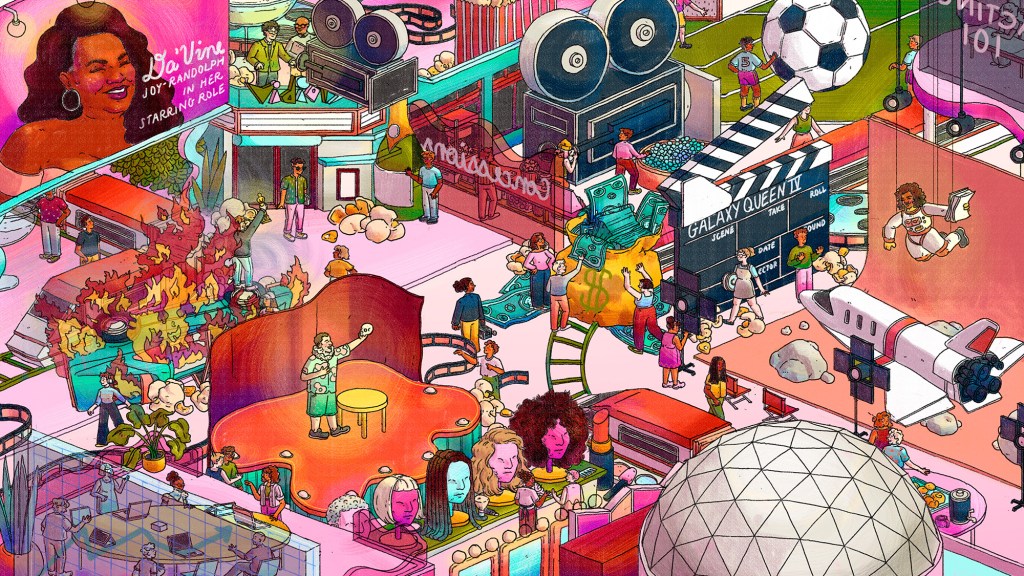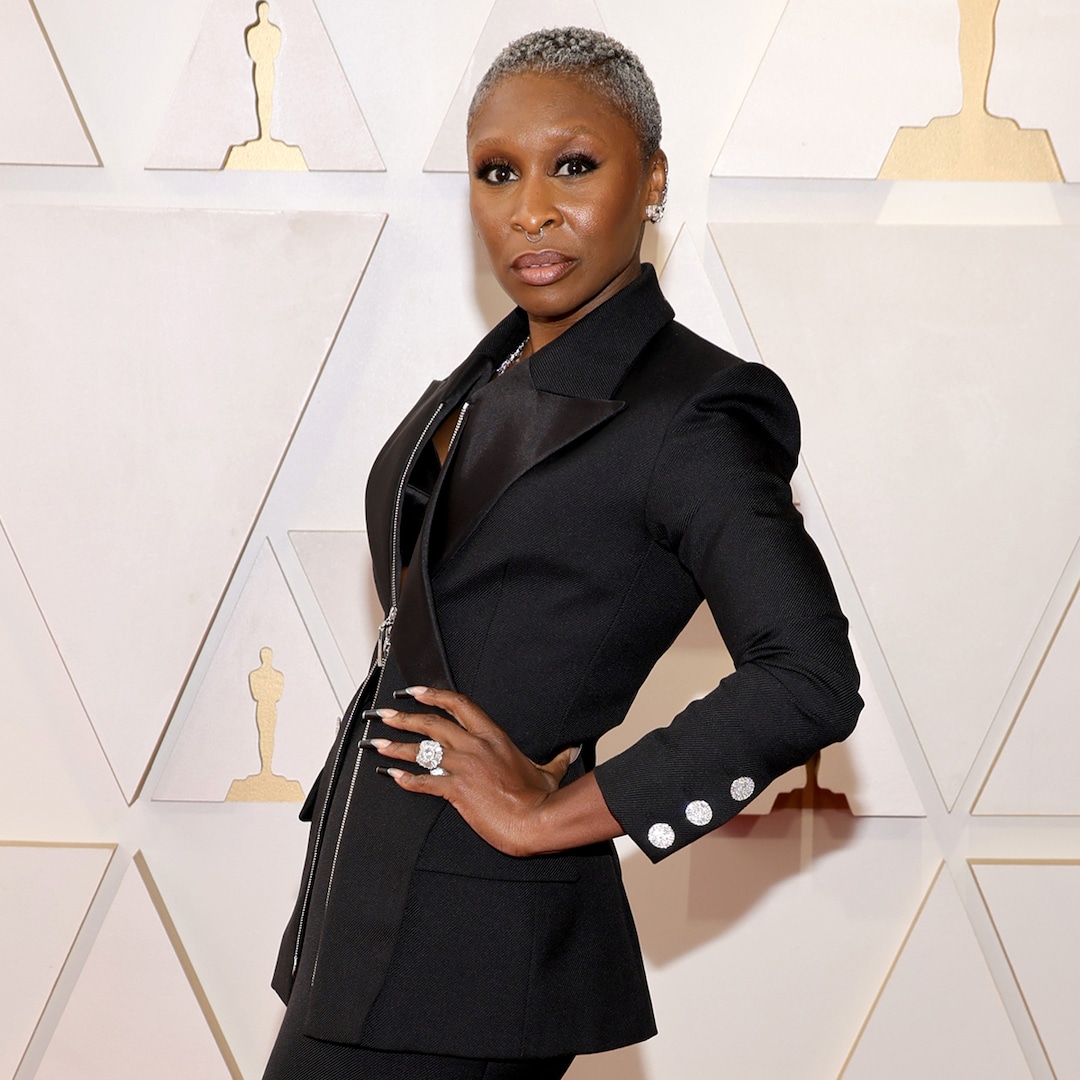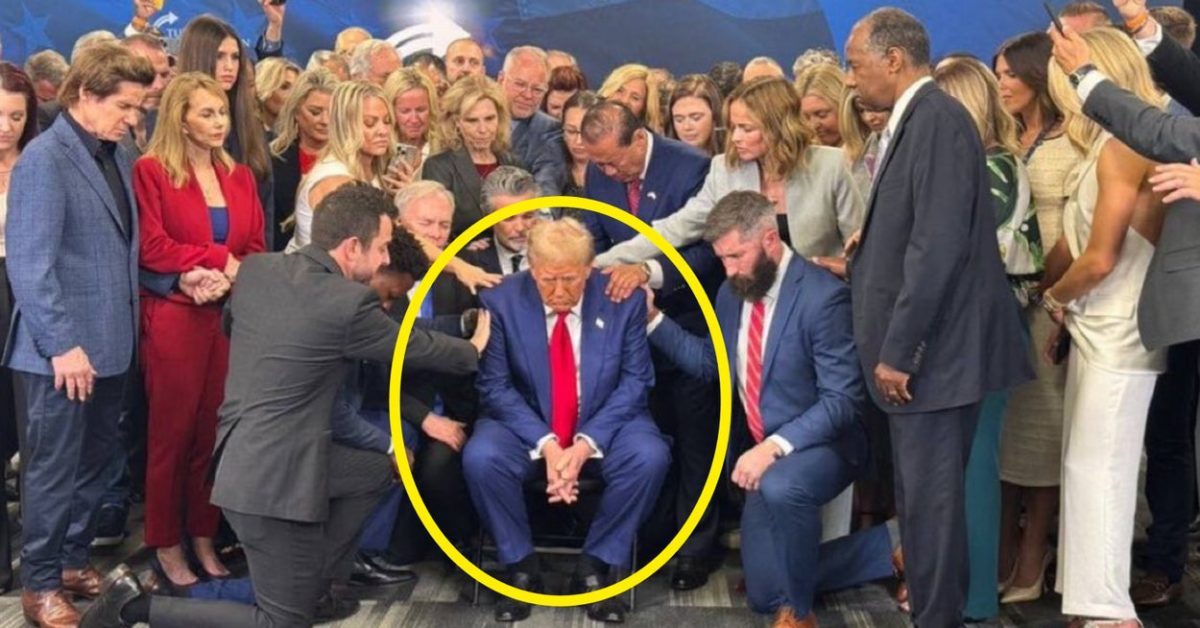
Franklin Leonard Guest Column on the Future of Hollywood – The Hollywood Reporter
Nov 11, 2023
With the strikes lifted and the town on the verge of going back to work, The Hollywood Reporter asked The Black List founder Franklin Leonard to predict what’s next for the industry. What he came up with was less a prognostication and more a prescription to help Hollywood future-proof itself.
A wholly serious and non-exhaustive list of things the Future of Hollywood needs for there to be a viable Future of Hollywood at all:
• More dramatic performances from Adam Sandler
• A starring role or five for Da’Vine Joy Randolph.
• A Barry Jenkins-Bong Joon Ho collaboration.
• A meritocratic system for identifying talented creative people at a global scale where talent is the exclusive determinant of professional opportunity instead of location, age, gender, race, parentage, colonial legacy or any number of historical biases that have prevented the industry from maximizing financial returns and creative accomplishment.
• The inevitably more diverse talent pool and pipeline born of a true meritocracy conducted at a global scale.
• A marketplace that recognizes that talent in the arts is fundamentally subjective.
• Dispensing with the assumption of white male objectivity and its contrapositive.
• A more efficient marketplace for talent and material, aided by technology.
• Recognition of the particular and currently underappreciated value that writers create via the authorship of scripted material.
• Appropriate compensation for the value that those writers create.
• A livable wage for everyone at every level.
• A compensation model that allows everyone involved in making something – whatever the distribution method – to participate in the windfall generated by its success while simultaneously minimizing the risks of those providing capital in the event of (inevitably frequent) failure.
• Deployment of data to minimize financial risk and permit artists greater freedom within agreed-upon logistical parameters.
• Easily attainable financing infrastructures allowing independent filmmakers to access capital equal to the strength of their project, not their social proximity to capital.
• Some sort of penalty for quoting William Goldman’s “Nobody knows anything” without including the rest of the quote: “Not one person in the entire motion picture field knows for a certainty what’s going to work. Every time out it’s a guess and, if you’re lucky, an educated one.”
• Environmentally sustainable practices in all Hollywood production, from energy use to waste management.
• More movies and television about proper football (soccer).
• Entirely free undergraduate and graduate film and arts education for at least hundreds of matriculating students annually.
• Legal, financial and technology literacy training as part of undergraduate and graduate arts educations.
• More non-traditional film and art schools.
• Corporate and government support of non-traditional film and arts schools.
• Universal global access to virtual education about film and television making.
• Universal primary, middle-grade and secondary arts education.
• Media and narrative literacy taught broadly in schools as part of the basic curriculum from primary school on.
• High-speed internet access, everywhere.
• Six words: Viola Davis. Action franchise. In space.
• A community of buyers, employers, representatives, publicists, festival programmers and critics comprised of everyone with both the ability and desire to work in those realms. And therefore, an industry as diverse as the global audience they’re meant to serve and profit from.
• Increased focus on regional film festivals.
• More international co-productions.
• More actors onscreen who don’t conform to Hollywood’s historical standards of beauty.
• Appropriate hair, makeup and accessibility for those who don’t conform to Hollywood’s historical standards of beauty – billed to production, not to the talent.
• Higher wig budgets.
• Transparent reporting on viewership, earnings, expenses and fees.
• Technological infrastructures and professional norms supporting remote collaboration and work, making it possible to be a Hollywood professional even if you’re not in Hollywood.
• More writers who aren’t from Los Angeles, New York or London or don’t live in Los Angeles, New York or London.
• More people working in Hollywood who grew up poor.
• Compensation structures for early career artists and support staff employees that could reasonably allow someone who grew up poor to work in Hollywood, especially behind the camera and in the boardroom.
• Wherever a supposed meritocracy fails to include various communities for whatever reason, a dedicated effort to recruit and support artists from those communities so that the aggregate production of the industry looks like the world (and likely profits best for having done so).
• More accessibility to capture the creative contributions and financial value of creatives and audiences historically excluded from the history due to myriad disabilities unrelated to their ability to create and appreciate the work Hollywood makes and improve its collective bottom line.
• Financial support for filmmakers making decidedly non-commercial, experimental films.
• Increased transparency in the casting process.
• Increased transparency in hiring, generally.
• More non-English language film and television in English-language markets.
• More comedies.
• More romantic comedies.
• Less heteronormativity.
• More movies and television about the role of faith in people’s lives.
• More live-action movies for kids.
• More theaters.
• More non-traditional theaters.
• More non-traditional theatrical releases (see also: Beyoncé; Swift, Taylor).
• Variable theater pricing.
• Better theater concessions.
• The Arclight dome.
• More repertory movie theaters.
• Vidiots.
• Ongoing financial support of Karina Longworth’s work.
• Technology-enabled exclusive bonus content as part of the theatrical experience (messages from the filmmakers, panels, Q&As and near-infinite things that technology may enable in the coming years).
• Regulation to guard against monopolistic and oligopolistic market inefficiencies.
• Non-monopolistic/oligopolistic ownership of industry trade publications.
• No theatrical distribution requirement for Academy Awards.
• Allowing direct submission for Best International Feature Film Oscar consideration.
• A stunts Oscar.
• The Academy Awards as a culmination of a Global Film Week celebration, instead of Global Film Day which inexplicably happens on the second Saturday in February.
• A new, truly global (emphasis on truly global) film and television awards show.
• Artists as the principal authors of the guardrails around technology’s uses in their art form.
• Childcare on set.
• More childcare everywhere.
• Mandatory viewing of Lindsay Doran’s Psychology of Storytelling lecture.
• Mandatory viewing of Michaela Coel’s James MacTaggart lecture.
• An industry-wide recognition and responsible stewardship of the role we play in influencing values and worldviews.
• Safe and respectful working environments for everyone.
• Accountability.
• Basic human decency.
Publisher: Source link
Nick Cannon On Insecurities In Mariah Carey Marriage
Nick Cannon On Insecurities In Mariah Carey Marriage For a reminder, Nick and Mariah secretly tied the knot in 2008 after starring together in the music video for her song, “Bye Bye.” Three years later, the couple became parents to…
Oct 30, 2024
Cynthia Erivo Speaks Out After Her Criticism of Wicked Poster
Cynthia Erivo is green with passion for Wicked. That is why the Tony Award winner—who portrays Elphaba in the film alongside Ariana Grande’s Glinda the Good Witch—didn’t hold back when she recently criticized an edit of the movie poster that…
Oct 30, 2024
A Picture Of People Praying Over Donald Trump Is Going Viral
Tonight we prayed over President Trump. We prayed for his safety, his strength, a unified country, and God's will to be done. May God continue to bless Donald Trump pic.twitter.com/YlECaL31Gf— Riley Gaines (@Riley_Gaines_) October 24, 2024 Disclaimer: This story is…
Oct 29, 2024
Charlie McDowell Shares Insight Into Family Plans With Lily Collins
‘Emily in Paris’ Lily Collins Reveals Who She Thinks Her Character’s One True Love Is Lily Collins and Charlie McDowell’s plans for the future are très exciting. And as The Summer Book writer and director revealed, he and the Emily in Paris star can see themselves expanding their…
Oct 29, 2024











